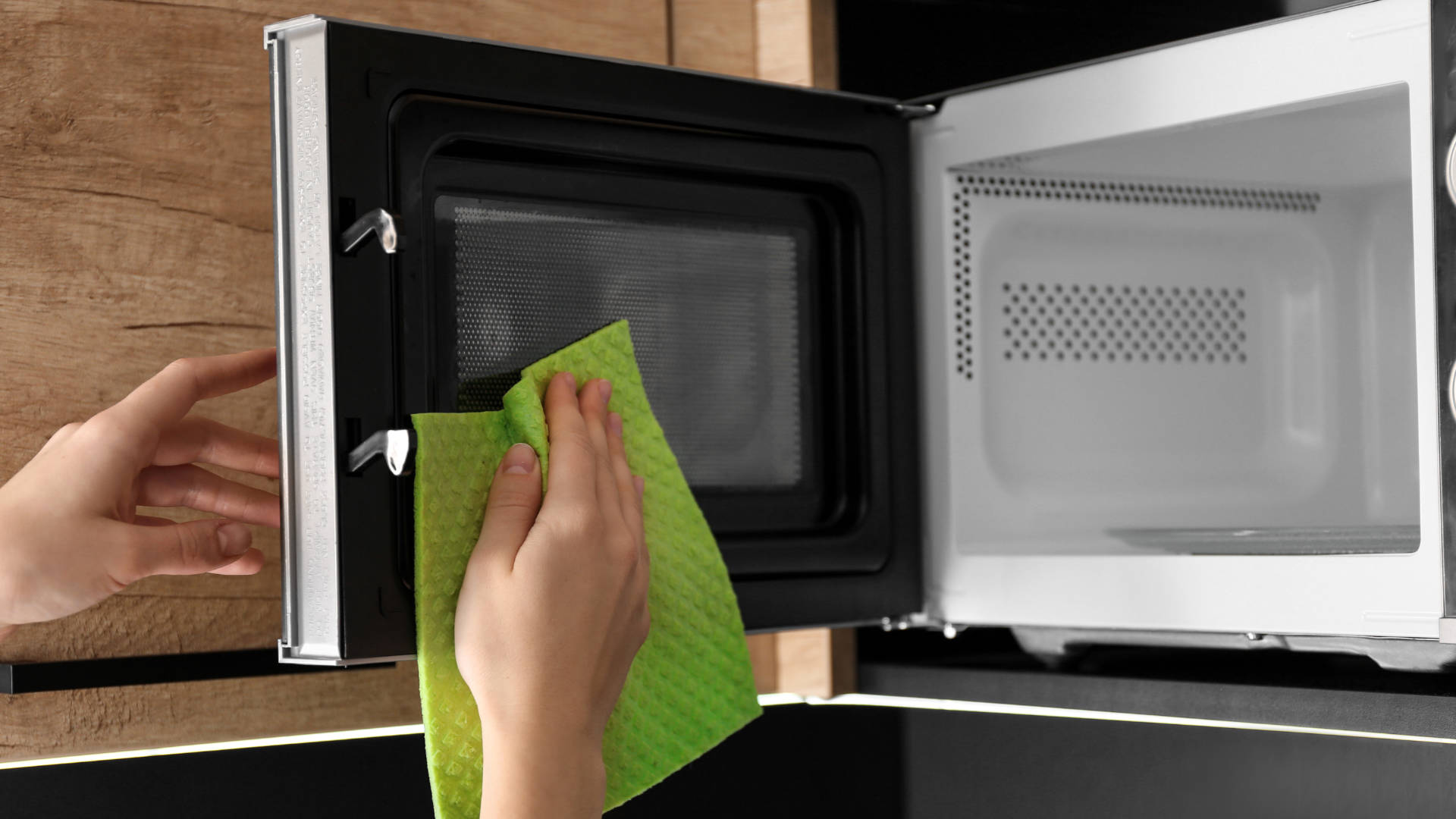If your microwave keeps blowing fuses, it can be frustrating and inconvenient. This issue may stem from using the wrong type of fuse, faulty microwave components, or problems with your home’s electrical system. Understanding these common causes can help you diagnose and fix the problem, ensuring your microwave operates smoothly again.
It’s important to address this issue promptly to avoid any potential hazards. Additionally, consult a professional if needed to ensure safety and proper resolution. Microwaves are essential appliances in modern kitchens, providing quick and convenient cooking solutions. However, if you’re experiencing repetitive fuse blowouts in your microwave, it can be frustrating and concerning.
The constant need to replace a blown fuse not only interrupts your cooking routine but also indicates an underlying problem that needs attention. Understanding the potential reasons behind a microwave blowing fuses can help in identifying and resolving the issue effectively. Let’s explore common causes and possible solutions to address this problem, ensuring the safe and efficient operation of your microwave.
Common Causes Of Microwave Keeps Blowing Fuse
Microwaves are a staple appliance in most kitchens, offering a quick way to heat up meals and snacks. However, if your microwave keeps blowing its fuse, it can be frustrating and inconvenient. Understanding the common causes for a blown fuse in a microwave can help you troubleshoot the issue and prevent future problems. Let’s explore the potential culprits behind this recurring issue.
Incorrect Fuse Type
Using the wrong type of fuse in your microwave can lead to repeated fuse blowouts. It’s crucial to ensure that you are using the correct amperage and voltage rating for your microwave model. Installing an inadequate or incompatible fuse can result in excessive current flowing through the circuit, causing it to blow. Always refer to your microwave’s manual or consult with a professional to determine the appropriate fuse type for your appliance.
Faulty Microwave Components
A faulty component within the microwave, such as a malfunctioning door switch, capacitor, diode, or transformer, can also cause the fuse to blow. When these internal parts fail, they can lead to irregular power surges, overloading the circuit and triggering the fuse to blow. Diagnosing and repairing these components may require the expertise of a qualified technician to ensure proper handling and prevent further damage to the appliance.
Electrical System Issues
Issues within the residence’s electrical system, such as wiring problems, overloaded circuits, or voltage fluctuations, can contribute to the repeated blowing of a microwave’s fuse. Poor electrical connections and outdated wiring may result in irregular power supply to the appliance, causing the fuse to fail. It’s essential to have a professional electrician inspect and address any underlying electrical issues to safeguard the proper functioning of your microwave and ensure safety within your home.
Signs Of A Blown Microwave Fuse
When your microwave keeps blowing fuse, it can be frustrating and inconvenient. However, it is important to identify the signs of a blown microwave fuse so that you can take the necessary steps to resolve the issue. Here are some common signs to look out for:
Microwave Not Powering On
If your microwave is not powering on at all, it could be a sign that the fuse has blown. When the fuse blows, it cuts off the power supply to the microwave, resulting in it not being able to turn on. In such cases, it is recommended to check the fuse and replace it if necessary.
No Display On The Control Panel
Another sign that a microwave keeps blowing fuse is when there is no display on the control panel. If you notice that the control panel is not lighting up or showing any information, it could indicate a blown fuse. In this case, checking and replacing the fuse might be necessary to restore the display and functionality of your microwave.
No Heat Generated
In some cases, a blown microwave fuse can result in no heat being generated when the microwave is turned on. If you find that your food is not heating up despite the microwave appearing to run, it could be a sign that the fuse has blown. This can be resolved by checking and replacing the fuse to restore the heating function of your microwave. If your microwave keeps blowing fuse repeatedly, it may indicate an underlying issue that needs professional attention.
If you experience any of these signs, such as your microwave keeps blowing fuse, it is important to take prompt action to address the issue. While checking and replacing the fuse might solve the problem, it is advisable to consult a professional if the issue persists or if you are unsure about handling electrical components. By addressing a blown microwave fuse, you can ensure that your microwave functions properly and efficiently in the long run.
Testing And Identifying A Blown Fuse
Microwaves are essential kitchen appliances, but it can be frustrating when they keep blowing fuses. One of the common causes of this issue is a blown fuse. Testing and identifying a blown fuse is crucial in resolving the problem efficiently. If your microwave keeps blowing fuse, conducting a thorough inspection of the fuse and its connections can help pinpoint the issue and facilitate prompt repairs.
Checking For Continuity With Multimeter
- Turn off the microwave and unplug it from the power source.
- Set the multimeter to the continuity or resistance setting.
- Place the multimeter probes on each end of the fuse to test for continuity.
- If there is continuity, the fuse is intact, but if there is no continuity, the fuse is blown and needs to be replaced.
Visual Inspection Of The Fuse
- Visually inspect the fuse for any signs of damage, such as a blackened or broken filament.
- If the fuse appears to be blown, it should be replaced with a new fuse of the same type and rating.
- Ensure the replacement fuse is compatible with the microwave model to avoid future issues.
Replacing The Fuse
| Steps to Replace the Fuse: |
|---|
| 1. Locate the fuse housing in the microwave. |
| 2. Remove the blown fuse carefully using a fuse puller or insulated pliers. |
| 3. Insert the new fuse into the housing and secure it in place. |
| 4. Reassemble the microwave and plug it back in. |
By following these steps to test, identify, and replace a blown fuse in your microwave, you can ensure that your appliance functions properly and safely.
Common Parts Linked To Fuse Issues
Understanding the common parts linked to fuse issues in a microwave can help diagnose and resolve problems efficiently. Below are some key components often associated with fuse problems:
Door Switch Malfunction
A malfunctioning door switch is a frequent culprit behind blown fuses in microwaves. When the door switch fails to engage properly, it can cause the fuse to overload and blow.
Thermal Fuse Failure
The thermal fuse acts as a safety device to prevent overheating. If the thermal fuse fails, the microwave may draw too much power, leading to fuse issues.
Issues With The Circuit Board
Problems with the circuit board, such as short circuits or component failures, can result in fuse blowouts. It’s essential to inspect the circuit board for any visible damage or irregularities.
Steps To Fix A Blown Microwave Fuse
- Ensure the microwave is disconnected from the power source to avoid any electrical hazards.
- Remove the microwave cover to gain access to the internal components where the fuse is located.
- Locate the faulty fuse inside the microwave and carefully replace it with a new fuse of the same rating.

Credit: www.youtube.com
Importance Of Professional Help
Microwave Keeps Blowing Fuse: When facing electrical issues with your microwave, seeking professional help is crucial for safety and proper repairs.
High Voltage Risks
- High voltages in microwaves pose serious risks if mishandled during repairs.
- Professional technicians are trained to handle high voltage components safely.
Precision In Replacement
- Replacing fuses in a microwave requires precision to avoid further damage.
- Experts ensure the right type of fuse is used and installed correctly.
Ensuring Device Safety
- Professional help guarantees that your microwave is safe for use after repairs.
- Quality assurance is vital to prevent future fuse blowouts.
Preventive Measures To Avoid Fuse Blowing
When it comes to your microwave constantly blowing fuses, it can be frustrating to deal with the inconvenience of a non-functioning appliance. However, implementing preventive measures can help avoid future fuse blowing and ensure the smooth operation of your microwave. By following these preventive measures, you can maintain the efficiency and longevity of your microwave while preventing potential electrical hazards. If your microwave keeps blowing fuse, it’s crucial to address the issue promptly to avoid further inconvenience and potential safety risks
Regular Maintenance Checks
Regular maintenance checks are essential to ensure that your microwave is in optimal working condition. Inspect the power cord and plug for any signs of damage or wear and tear, and make sure there are no exposed wires. Additionally, schedule periodic maintenance with a certified technician to conduct thorough inspections of internal components, such as the door switches, thermal fuse, and circuit board, to identify any potential issues before they result in a blown fuse. By staying proactive with maintenance, you can minimize the chances of your microwave keeps blowing fuse and ensure its reliability for years to come.
Avoiding Overloading Circuits
Overloading circuits can significantly contribute to the blowing of fuses in your microwave. Avoid plugging other high-power appliances into the same circuit as the microwave, as it can lead to excessive electrical load and cause the fuse to blow. If the circuit becomes overloaded, consider redistributing the appliances across multiple circuits to alleviate strain on individual circuits and prevent frequent fuse blowing. By managing electrical loads effectively, you can reduce the likelihood of your microwave keeps blowing fuse and ensure uninterrupted operation.
Proper Usage Guidelines
Adhering to proper usage guidelines is crucial in preventing fuse blowing in microwaves. Avoid using metal utensils or aluminum foil in the microwave, as they can lead to electrical arcing and potentially cause a fuse to blow. Additionally, refrain from running the microwave empty, as this can also cause overheating and lead to fuse failure. Follow the manufacturer’s instructions for optimal usage, such as not exceeding the recommended cooking times and power levels to prevent excessive stress on the appliance and potential fuse blowing. By following these guidelines, you can minimize the risk of your microwave keeps blowing fuse and ensure its safe and efficient operation.

Credit: appliancecareusa.com
Educational Resources On Microwave Repair
Are you tired of your microwave blowing a fuse every time you try to use it? Don’t worry, we’ve got you covered! In this section, we will be discussing various educational resources that can help you troubleshoot and repair your microwave. Whether you prefer reading articles, watching videos, or engaging in discussions on forums, you’ll find a wealth of information to help you fix the issue of a blown fuse. By utilizing these resources, you can gain the knowledge and skills needed to address the problem of your microwave keeps blowing fuse and restore its functionality with confidence.
Youtube Tutorials On Fuse Replacement
YouTube is a hub for DIY enthusiasts looking for step-by-step tutorials on various repairs, including replacing fuses in microwaves. Here are some YouTube videos that can guide you through the process:
- How to Fix a Microwave Fuse That Keeps Blowing – A to Z Appliance Repair
- Microwave Dead? 🔥 Blowing Fuses? Check the Door Switch! – Apache Ranch
- GE Microwave Keeps Blowing Fuse / Breaker – DIY Fix – Key Fob Rob
Articles On Microwave Maintenance
If you prefer reading and learning about microwave repair through articles, there are plenty of resources available. Some helpful articles include:
- What would cause a microwave fuse to keep blowing? – Appliance Care USA
- What would cause a fuse to keep blowing? – Cinch Home Services
Forums For Diy Repair Discussions
Engaging in discussions with fellow DIY enthusiasts can provide valuable insights and solutions to common problems. Here are some forums where you can participate in microwave repair discussions:
Understanding The Role Of Thermal Fuses
Understanding the role of thermal fuses is crucial when dealing with a microwave that keeps blowing fuses. If the fuse continues to blow, it could be due to using the wrong type of fuse, incorrect installation, a faulty microwave part, or electrical issues in the residence.
Functionality In Microwave Ovens
Microwave ovens are a common staple in kitchens, providing quick and convenient cooking solutions. However, if you’ve ever experienced a blown fuse in your microwave, you know how frustrating it can be. One component that plays a crucial role in preventing potential hazards is the thermal fuse.
The thermal fuse in a microwave serves as a safety mechanism that protects the appliance from overheating. It is designed to trip and disconnect the power supply in the event of excessive heat buildup. This ensures that the electrical components are not damaged and minimizes the risk of fire or other safety issues. Understanding the function of the thermal fuse can help diagnose and address issues when your microwave keeps blowing fuse.
Protection Mechanisms It Provides
The primary function of the thermal fuse in a microwave is to prevent excessive heat buildup. It does this by interrupting the electrical circuit when the temperature exceeds a predetermined threshold. This mechanism is crucial in safeguarding the internal components of the microwave from damage. When the microwave reaches a high temperature due to extended cooking time or a malfunction within the appliance, the thermal fuse acts as the last line of defense.
It prevents the electrical current from flowing, effectively shutting off power to the entire microwave. This protects not only the internal components but also the user from potential hazards. Understanding the role of the thermal fuse can help diagnose issues when your microwave keeps blowing fuse.
Signs Of Thermal Fuse Failure
When a thermal fuse fails, it can result in the microwave blowing fuses frequently. Detecting signs of thermal fuse failure can help recognize the issue and take appropriate action. Here are some common indications of a malfunctioning thermal fuse:
1. Microwave does not turn on: If the thermal fuse has blown, the microwave will not power up. This could be a sign that the fuse has tripped due to overheating or an internal malfunction.
2. Microwave does not heat: A blown thermal fuse will also prevent the microwave from generating heat, rendering it ineffective for cooking or reheating purposes.
3. Fuse repeatedly blows: If the thermal fuse is faulty or improperly installed, it may cause the microwave’s main fuse to blow repeatedly. This indicates that there is an underlying issue that needs to be addressed.
4. Burning smell or unusual noises: In some cases, a blown thermal fuse may be accompanied by a burning smell or unusual noises coming from the microwave.
These signs should not be ignored and should prompt immediate action. If you suspect that the thermal fuse in your microwave is faulty, it is advisable to consult a professional technician for the necessary repairs or replacements. Attempting to fix the thermal fuse yourself may lead to further damage or safety hazards.
Understanding the role of thermal fuses in microwave ovens is important in maintaining their proper functionality and addressing any issues that may arise. By recognizing signs of thermal fuse failure and taking appropriate action, you can ensure the safe and efficient operation of your microwave, preventing the frustration of it keeps blowing fuse.

Credit: m.youtube.com
Specific Manufacturers And Fuse Issues
When dealing with microwave issues, it’s crucial to understand the specific problems that arise, especially related to fuse challenges, which can vary between different manufacturers. Identifying the unique fuse issues with certain brands can help in troubleshooting and addressing the problem effectively. If your microwave keeps blowing fuse, consulting the manufacturer’s guidelines or seeking advice from professionals familiar with the brand’s common issues can provide valuable insights into resolving the issue efficiently.
Panasonic Microwave Problems
For Panasonic microwaves, frequent fuse blowing can often be linked to issues with the door switches or faulty wiring. It’s essential to inspect the door switches and wiring to ensure proper functionality and prevent recurring fuse problems. If your Panasonic microwave keeps blowing fuse, a thorough examination of these components can help identify and address the underlying issues, ensuring reliable performance and safety.
Kenmore Microwave Fuse Challenges
Owners of Kenmore microwaves may encounter fuse challenges due to overheating components or short circuits. Conducting a thorough inspection of the internal components and ensuring proper ventilation can help mitigate fuse blowing issues. If your Kenmore microwave keeps blowing fuse, it’s important to address potential overheating or short circuiting by checking for any damaged components and ensuring adequate airflow within the appliance.
Troubleshooting Frigidaire Appliances
When dealing with Frigidaire microwaves, fuse problems can stem from issues with the thermal fuse or door switch. Regular maintenance and timely replacement of faulty components can prevent recurring fuse blowing incidents. If your Frigidaire microwave keeps blowing fuse, it’s advisable to inspect the thermal fuse and door switch for any signs of malfunction and replace them as needed to ensure the continued reliability and safety of your appliance.
Frequently Asked Questions
What Would Cause A Microwave Fuse To Keep Blowing?
Several factors can cause a microwave fuse to keep blowing. If your microwave keeps blowing fuse, it could be due to overheating, faulty components, short circuits, incorrect fuse installation, power surges, or manufacturing defects. Addressing these issues may require troubleshooting by a qualified technician to identify and resolve the root cause of the problem.
What Would Cause A Fuse To Keep Blowing?
A microwave fuse keeps blowing due to wrong type of fuse, incorrect installation, faulty part, or electrical issues.
How To Tell If A Microwave Fuse Is Bad?
To determine if a microwave fuse is bad, check for a burnt appearance or continuity using a multimeter.
Can I Replace A Microwave Fuse Myself?
Yes, you can replace a microwave fuse yourself, but it’s best to have a service technician do it. Microwaves contain a lethal amount of electricity, so it’s safer to let a professional handle it.
Why Does My Microwave Keep Blowing The Fuse?
Microwave keeps blowing the fuse? Learn the possible reasons behind this issue and how to fix it.
What Could Be Causing The Fuse In My Microwave To Blow Repeatedly?
Discover the potential causes for your microwave’s fuse repeatedly blowing and how to address them.
How Do I Know If The Fuse In My Microwave Is Bad?
Learn how to identify if the fuse in your microwave is faulty and needs replacement.
Can I Replace The Microwave Fuse Myself?
Explore whether it’s safe and possible to replace the fuse in your microwave without professional help.
What Type Of Fuse Should I Use For My Microwave?
Find out the correct type of fuse required for your microwave to prevent it from blowing repeatedly.
Are There Any Common Mistakes When Installing A Microwave Fuse?
Learn about common mistakes to avoid when installing a fuse in your microwave to ensure proper functioning.
Conclusion
In troubleshooting a microwave that keeps blowing its fuse, it is important to consider various factors. Check for incorrect fuse installation, faulty microwave parts, or issues with the electrical system. If the problem persists, seeking professional assistance may be necessary.
Adhering to proper safety measures is crucial when dealing with a microwave’s internal components. Remember, a cautious approach is vital for resolving such issues effectively and safely.










Leave a Review